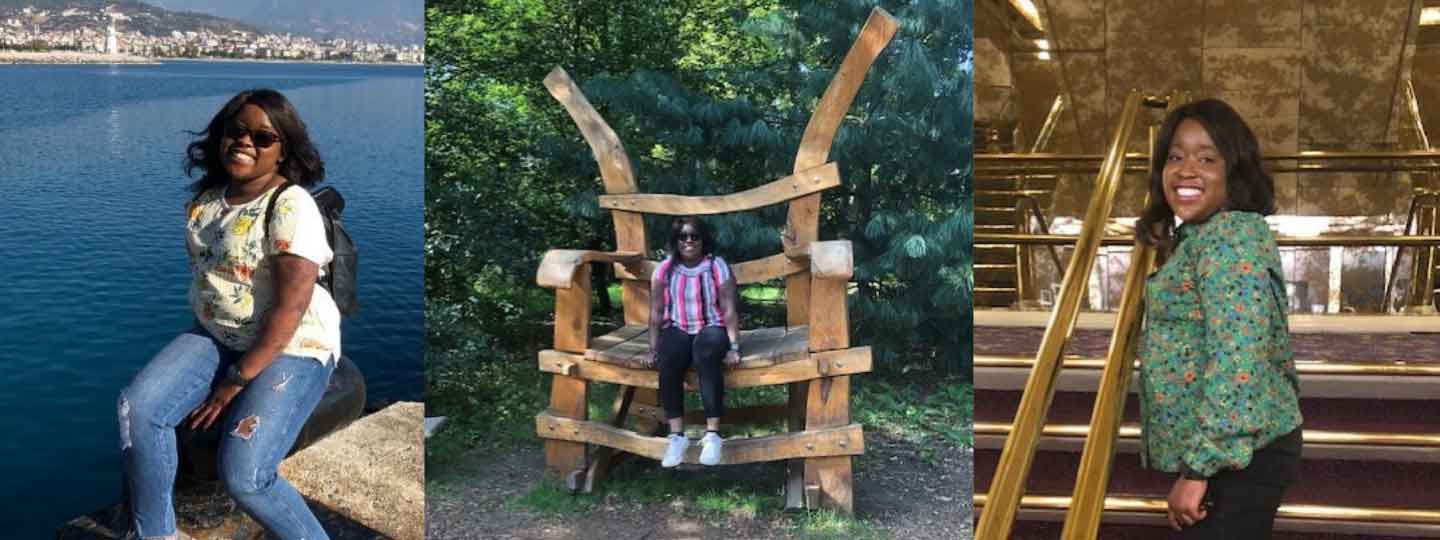Paying it forward: Why Melissa wants to empower others
27 October 2020
Melissa Chieza was inspired to become an occupational therapist (OT), after her own OT empowered her to maintain independence through the management of her lupus and type 1 diabetes.
She’s almost finished her training and wants to give others the strength and tools to achieve their goals.
“On my 9th birthday I was diagnosed with type 1 diabetes and lupus.”
Prior to my diagnosis I was in hospital for 13 months as I’d been really fatigued. I would come home from school and would be so tired I’d go straight to bed. I had also lost weight and was anemic, so my parents took me to A&E.
I got diagnosed with diabetes and lupus at the same time. It was hard being in hospital for such a long time. I missed my friends but was quite resilient. My family worked in healthcare and allowed me to have as normal life as possible.
I didn’t know the impact of the diagnoses and continued as normal. At that age it hadn’t sunk in. It did when I did my AS levels and was becoming an adult as there were more stressors.
“When I had a flare up I wondered if I could have done something to reduce it.”
I had a flare up during my GCSEs and AS levels. I had barely known my new rheumatologist as I had gone into adult care. Having a flare up is something you can’t schedule; it isn’t pre-planned and can happen at any time.
I needed to be kinder to myself. I used to blame myself for a flare up, but it could be triggered by a number of things. It’s important that young people do not blame themselves.
I’m months away from finishing my occupational therapy (OT) degree and it’s been important to know when things get too much. If something is going on I flag it to my team straight away. It’s about knowing your limits and pacing yourself, young people struggle with this.
“It’s important to have peer support so you can express yourself.”
Meeting people with diabetes and with lupus has been important. I’ve noticed that a lot of people do want to talk to someone outside their family.
My lupus support group have a group chat. We share experiences of shielding and how we’re getting on. I’m also part of a group for type 1 diabetics.
“It’s about making that first step to get help.”
Journaling at the end of the day has helped me. For example, ‘what has gone well, what hasn’t gone well’. We can always reflect on events in life and think ‘if this didn’t work what can we try?’.
If there’s something that I’m not happy with I raise it with my medical team. There will always be a point where you need more support.
Someone I know with diabetes said, ‘capture your good days so that you can always look back and reflect on good days’. You’re going to have days where it isn’t going to be good but it’s important to look back and move the goal posts.
“My occupational therapist empowered me to be independent again.”
My goal of becoming an OT came from my diagnoses. As an OT you work on pacing yourself strategies and how to monitor progress and get back to your goal.
It’s important to recognise you’re not alone in this journey. I usually say that having lupus and diabetes empowered me to know how to manage with a busy schedule.
Lots of people say, “I can’t go to uni…” - you can! Holistically empower yourself to do it by management and building a good support network. Educate yourself, identify and document problems and involve your healthcare professionals when thinking about your next steps.
“Even during the pandemic, we need to think about how we use technology.”
When I see my rheumatologist I bring a photo of a flare up and make notes in my iPhone. I try to take three; what it’s like now, a few days later and a week later. You don’t necessarily have to keep a pain diary, utilize what you’ve got.
People need to know there are other ways to record symptoms. Young people may think, I’m having flare up, I’ve called people but there’s no answer. But, documenting it in a different way is key
“There needs to be more education around conditions for people in the BAME community.”
Some people from the BAME community with lupus may not be as well supported as they could be. Depending on religion and culture, they may not be able to disclose their condition fully. Sometimes people feel like their families don’t want to talk about it, it’s an unspoken thing.
There needs to be more education around conditions. For example, being from Zimbabwe originally, and being diabetic, I would need to think more about food I eat. But there isn’t enough education on which foods you can have.
My message to others would be to notice your symptoms, record them, and remember to record the good days too.
Get the support you need
- If you would like to talk to someone, you can call our free helpline on 0800 5200 520 (Monday to Friday, 9am to 8pm)
- Talk to our arthritis virtual assistant, 24/7
- Join our online community
- Stay in touch and follow us on Twitter, Facebook and Instagram.